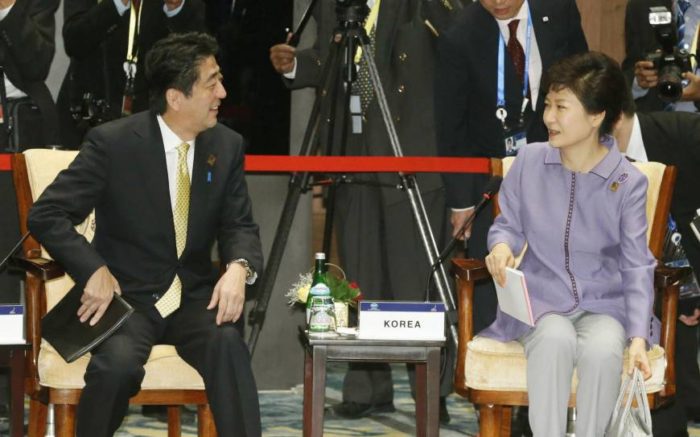Recently a cabinet minister slammed historians and the national broadcasting organization for peddling “left-wing myths” about the war and ignoring the justifications.
No, this didn’t happen in Japan, but in the UK. Education Secretary Michael Gove was railing against the portrayal of the First World War as “a misbegotten shambles.”
2014 marks the hundredth anniversary of the outbreak of hostilities. Controversy still rages about its causes and consequences. The debate will likely continue far into the future.
There can never be a definitive account because the attitudes and values of those making the account will continue to change. It is no coincidence that the “unpatriotic” version that so irks Mr. Gove went mainstream in the anti-authoritarian 1960s, as exemplified by the box office success of the satirical musical Oh, What a Lovely War!
According to Voltaire, “there is no history, just fiction of varying degrees of plausibility.” Plausibility is a malleable concept, with variations not only over time, but between observers with differing ideologies and cultural attachments. What is usually at stake is not the factuality of the facts, but how they are selected, weighted and woven into narratives.
In France Napoleon is a national hero. In Britain he is considered a mini-Genghis Khan (himself a national hero in Mongolia). In East Asia, it is natural and inevitable that the tumultuous and blood-drenched events of the last hundred years are interpreted differently by the colonizers and the colonized, the victors and the defeated, the capitalists and the communists.
How much does this matter? In a recent interview in the Huffington Post, Helmut Schmidt, the former chancellor of West Germany, declared that “the basic fact about Japan’s situation is that it does not have any friends in the region… They have invaded all these countries… They do not understand that all their neighbours hate them.”
This an extreme versions of a commonly held belief. If only Japanese leaders would apologize more sincerely / refrain from visiting Yasukuni Shrine / stop indulging “revisionist” ideas, then history could finally be laid to rest in East Asia and mutual understanding would reign.
The ex-Chancellor was mistaken in his view that Japan is the Billy No Mates of Asia. Apart from its closeness to former enemy Australia, Japan enjoys good relations with, amongst others, former colony Taiwan, Vietnam, Thailand, Myanmar and Indonesia. The ex-leader of Malaysia, Mahathir Mohamad had such admiration for Japan that he co-authored a book with Shintaro Ishihara, the right-wing gadfly who became mayor of Tokyo. Recently the foreign minister of the Philippines, which suffered terribly under Japanese occupation, stated that his country would “very much welcome” a rearmed Japan shorn of its pacifist constitution.
The common thread is not hard to see. Countries whose interests may be threatened by the rise of China see Japan as an important counterweight, regardless of the events of seventy years ago.
In contrast, relations between Russia and Japan are not close, but coldly business-like, revolving around potential deals concerning the development of Siberia and control of disputed islands north of Hokkaido.
The two countries fought four times in the first half of the twentieth century – the Russo-Japanese War of 1904, the 1918-1922 Japanese incursion into Siberia, the pitched battle at Nomonhan in 1939 and the Soviet sweep into Manchuria in August 1945. No peace treaty was signed, so officially Japan and Russia are still at war. Yet there are no angry disputes about text-books or the reputation of wartime leaders. Vital interests may not be congruent, but neither are they likely to collide. History if not dead is at least comatose.
There are only three countries that conform to the Schmidt paradigm – China, North Korea and South Korea. In the case of China the history card is an important tool, both for rallying its own public and for attacking Japan’s soft power. The Japanese defence budget has flat-lined since 1992 whereas, according to IHI Jane’s, Chinese military spending has quadrupled this century and continues to grow at a double digit rate. If China manages to persuade the world that the rise in regional tensions is the fault of a “remilitarizing” Japan, it would be an extraordinary feat of propaganda.
Like China, North Korea has an intuitive understanding of the totalitarian doctrine described in George Orwell’s 1984. “He who controls the past controls the future. He who controls the present controls the past.” The anomaly, on the face of it, is South Korea, now led by a conservative politician whose father graduated from the Japanese Military Academy in 1942. Until recently relations between the two countries were placid, with the boom in Japan for Korean TV shows and pop music spawning cultural interaction at street level. Now, according to surveys, South Koreans dislike Japanese prime minister Shinzo Abe more than North Korea’s Kim Jong Un.
Look closer, though, and the anomaly disappears. There is probably more head-to-head competition between Japan and South Korea – in consumer electronics, steel, ship-building and autos – than any two developed countries. Crucially, South Korea has placed a huge bet on China. Its exposure in terms of exports and foreign direct investment is roughly double Japan’s, and proportionally there are seven times as many young Koreans as Japanese studying there. China will also have a decisive say in Korean reunification and will probably want to minimize US and Japanese involvement.
Given Korea’s history and geographical position, triangulation between China and an uncertain US commitment to the region is a logical strategic choice. On this reading the recent eruption of controversy about the comfort women reflects a shift not in Japan’s view of its past, but in South Korea’s view of its own future.
Historical debates will never be settled. Whether they fade into irrelevance or flare up into sources of conflict depends not on the past, but on how the clash of interests develops in the world today.
